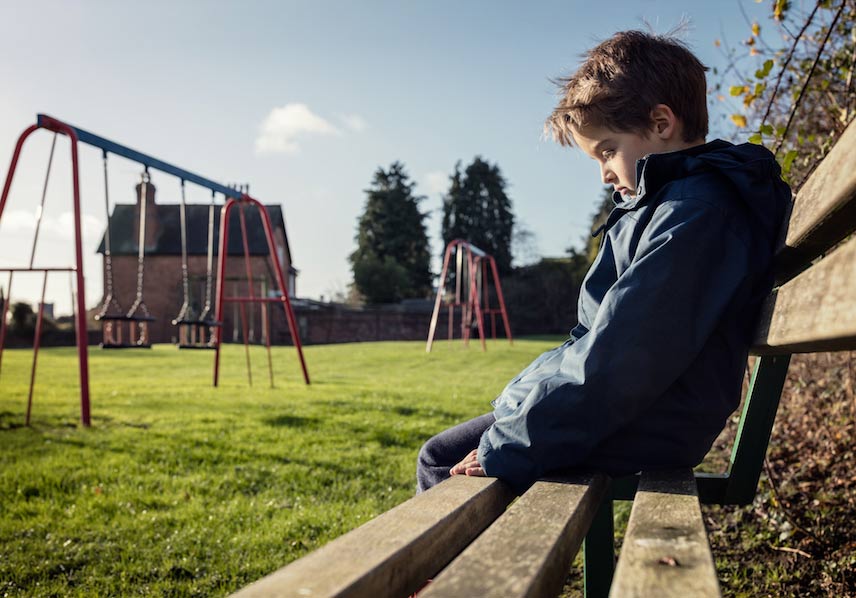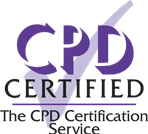
Although serious mental illness is rare in young people, it is not uncommon for children to experience emotional and behavioural problems which affect their daily lives and relationships. These are often a response to difficulties in the family or school, or a stressful event, such as bereavement, bullying, or parental separation. They may also be associated with physical illness or developmental disabilities, including learning difficulties, ADHD or Autistic Spectrum Disorder. Our experienced Child & Adolescent Mental Health Services (CAMHS) team is here to help.
Assessment of a child or young person’s mental health therefore involves looking at their medical and developmental history, family history, school functioning and relationships at home and school, and getting the perspectives of the child themselves, their parents and other relevant adults such as teachers. A range of treatments may be offered, including 1-to-1 sessions with the child, family work, liaison with other professionals and medication.
Some Problems That We Could Help With
Attention Deficit Hyperactivity Disorder (ADHD) in Children
Attention Deficit Hyperactivity Disorder (ADHD is a disorder which affects everyday life. Children with ADHD often find it difficult to sit still and listen, find it tricky to follow instructions, and after often seen as troublemakers. ADHD can manifest in a number of ways, including an inability to learn and play along with others.
Read more about ADHD here.
Childhood Anxiety
Anxiety is an experience which we all have at some point in our lives to varying degrees. Sometimes it can usefully motivate us to do things that we may not want to do, such as studying for an exam or attending an interview. However, when anxiety becomes overwhelming and we avoid or are prevented from doing our best in tasks it can become very stressful.
Severe anxiety may be triggered by a stressful event, such as bereavement or bullying.
Symptoms can include somatic symptoms such as headaches or tummy aches, chest pains, palpitations, cold hands and feet, blurred vision, dizziness and nausea, which can seriously affect our everyday functioning, although there is no actual physical illness.
Autistic Spectrum Disorders (ASD) in Children
These include Asperger syndrome and produce difficulties in 3 areas:
- Social interaction – including lack of understanding and awareness of other people’s emotions and feelings.
- Language and communication skills – including delayed language development and an inability to start conversations or take part in them properly.
- Unusual patterns of thought and behaviour – including making repetitive movements, such as hand tapping or twisting , or set routines of behaviour which, if broken, the child finds upsetting.
Although there is no cure for ASD, difficulties can be managed with specialist education, behaviour management support, and social skills training. Every child with ASD is different, and a detailed assessment to identify the extent of the problems and educating the young person, family and others in the child’s life (such as teachers), is important.
Obsessive Compulsive Disorder (OCD) in Children
OCD is another way in which anxiety can be expressed. People with OCD have unwanted and distressing thoughts that may include the fear of harm coming to them or other people if they do not carry out specific behaviours. Although sufferers are aware that these thoughts do not always make sense, the fear of what might happen if the behaviour is not carried out far outweighs the belief that the fear does not make sense.
Compulsive behaviours that people carry out can include excessively washing, cleaning, checking, or counting, or repeating phrases. The compulsive behaviours can take up a huge part of the day and often prevent people from getting on with other important parts of their lives, including going to school or family and social activities
Depression in Children
This can can involve a variety of distressing symptoms, including low mood, not being able to sleep or sleeping too much; a significant loss of or increase in appetite; reduction in motivation and concentration; withdrawal from usual activities; sometimes the feeling that life is not worth living.
People who suffer from depression can find themselves being frequently tearful and not wanting to do activities that they used to enjoy. Depression can often be a reaction to a particularly difficult life event, but in some cases, it just seems to appear as if out of nowhere.
Self-harming Behaviour in Children
Self-harm is a technique used by some young people (and adults) who feel overwhelmed by their difficult emotions and/or experiences and are unable to manage them. The sufferer deliberately causes harm to him or herself in order to feel physical pain rather than emotional pain.
Treatment For Mental Health Disorders In Children
- Advice on managing distressing feelings and unwanted behaviour
- Family appointments to think about ways to resolve problems together
- Individual therapy for your child to help them understand their feelings and learn new ways of coping
- Medication prescribed by a child and adolescent psychiatrist
- Support to other professionals about how best they can help you and your child
Cognitive Behavioural Therapy
A model that focuses on the relationship between thoughts, feelings and behaviours and explores practical and meaningful ways of working through current difficulties.
Systemic Therapy
The young person is understood as part of an organic and evolving system, for example the family. Change in one part of the system affects the system as a whole.
Parent Training (Behavioural Therapy)
The therapist coaches parents in applying such strategies as rewarding positive behaviour, and responding to negative behaviour with clear consequences and time out .
Medication
There is increasing evidence that medication can be a helpful addition to other treatments in some conditions e.g. severe depression, OCD, ADHD
Liaison with Other Agencies
It is often important to share information about the child with professionals e.g. teachers, Paediatricians or school nurses, so that everyone is working together.
When A Child Is Referred To Us
- All referrals are discussed by the team before a first appointment is offered. An initial appointment may be with any of the team, depending on the problem being referred.
- We would usually see the parents and child together as well as separately, as appropriate.
- After this, further sessions with the same clinician may be offered if appropriate, or a more detailed assessment organised with other members of the team.
- At the end of an assessment or piece of treatment, we would usually produce a report for the family, which can be shared with others e.g. GPs, with the family’s consent
Frequently Asked Questions
What mental health problems can children experience?
Whilst serious mental illnesses are rare in children, emotional and behavioural problems are common, for example:
- Anxiety
- Low mood
- Poor performance at school
- Oppositionality
- Hyperactivity
These may be a response to stresses in a child’s environment, such as bereavement, illness in a family member, or divorce. The child may be suffering trauma, such as bullying. Or they may have a developmental disability such as a learning difficulty, autism or Attention Deficit Disorder (ADD).
Who are the different people that make up the CAMHS multidisciplinary team?
- Child and adolescent psychiatrists – these are medical doctors who specialise in young people’s mental health, including the use of psychological and pharmacological therapy. They have specialist knowledge of child development, the links between physical and mental health, and how biological, psychological and social issues may combine to produce mental health problems.
- Clinical psychologists – these have a comprehensive doctoral training in mental health and emotional wellbeing. They have detailed knowledge of patterns of thinking, feeling, relating and behaviour. They can complete assessments that can indicate issues that may affect learning (e.g. memory, attention). Clinical psychologists may specialise in particular therapies e.g. family therapy or Cognitive Behavioural Therapy (CBT).
- Child and adolescent mental health nurses – these are qualified mental health nurses who specialise in working with young people with mental health problems and their families. They often have additional training in specific therapies e.g. family therapy, CBT, parent training, or psychodynamic approaches to treatment. They usually work in multidisciplinary teams, liaising closely with GPs, schools, and social workers, etc.
Does my child need a child psychiatrist?
It may not be necessary for your child to see a psychiatrist. All members of our team are highly qualified and experienced, and our nurse and psychologist are able to offer initial assessments. They are also experts in psychological treatments e.g. parenting support, family work, individual therapy.
A psychiatrist may need to be involved if:
- There are concerns about serious mental illness, physical ill-health, or a complex developmental disorder.
- Psychological approaches haven’t been sufficient and another treatment, such as medication, needs to be considered.
Why does CAMHS share information with other professionals?
We have a legal and professional duty to do what is in a child’s best interests, which includes sharing information when necessary.
Children will often be experiencing difficulties in multiple settings e.g. school, home, social situations. Treatment may therefore combine clinic-based therapy, parents carrying out behaviour management strategies at home, and support from school. All the adults working together (e.g. parents, teachers, CAMHS team) ensures a comprehensive approach and the best chance of success.
In a crisis, families may need to access their local services i.e. GP, hospital, or NHS CAMHS, and it is therefore important that a child’s GP is aware of his/her difficulties and any treatment being offered by The London Psychiatry Centre.
Who’s Who In CAMHS
Our experienced CAMHS team consists of
Dr Radha A. Bhat, Child and Adolescent Psychiatrist
Dr Spondita Goswami, Child and Adolescent Clinical Psychologist
Ms Lucille Balcombe, Child Mental Health Nurse
Miri Sizak-Cohen, Child and Adolescent Psychologist
We provide multidisciplinary assessment and treatment for a wide range of child mental health problems for children up to 18 years of age. Each of us has particular areas of expertise and we work together to provide a comprehensive service in line with the scientific evidence and good-practice guidance. When appropriate, we often work with other professionals such as GPs, schools, and Paediatricians.
Useful Web Resources
The Royal College of Psychiatrists (UK)
The British Psychological Society
Young Minds (UK)
The National Institute for Mental Health (USA)
If you’d like to find out more about our services or would like to book in for an initial appointment with one of our specialists, please call us on 020 7580 4224.


